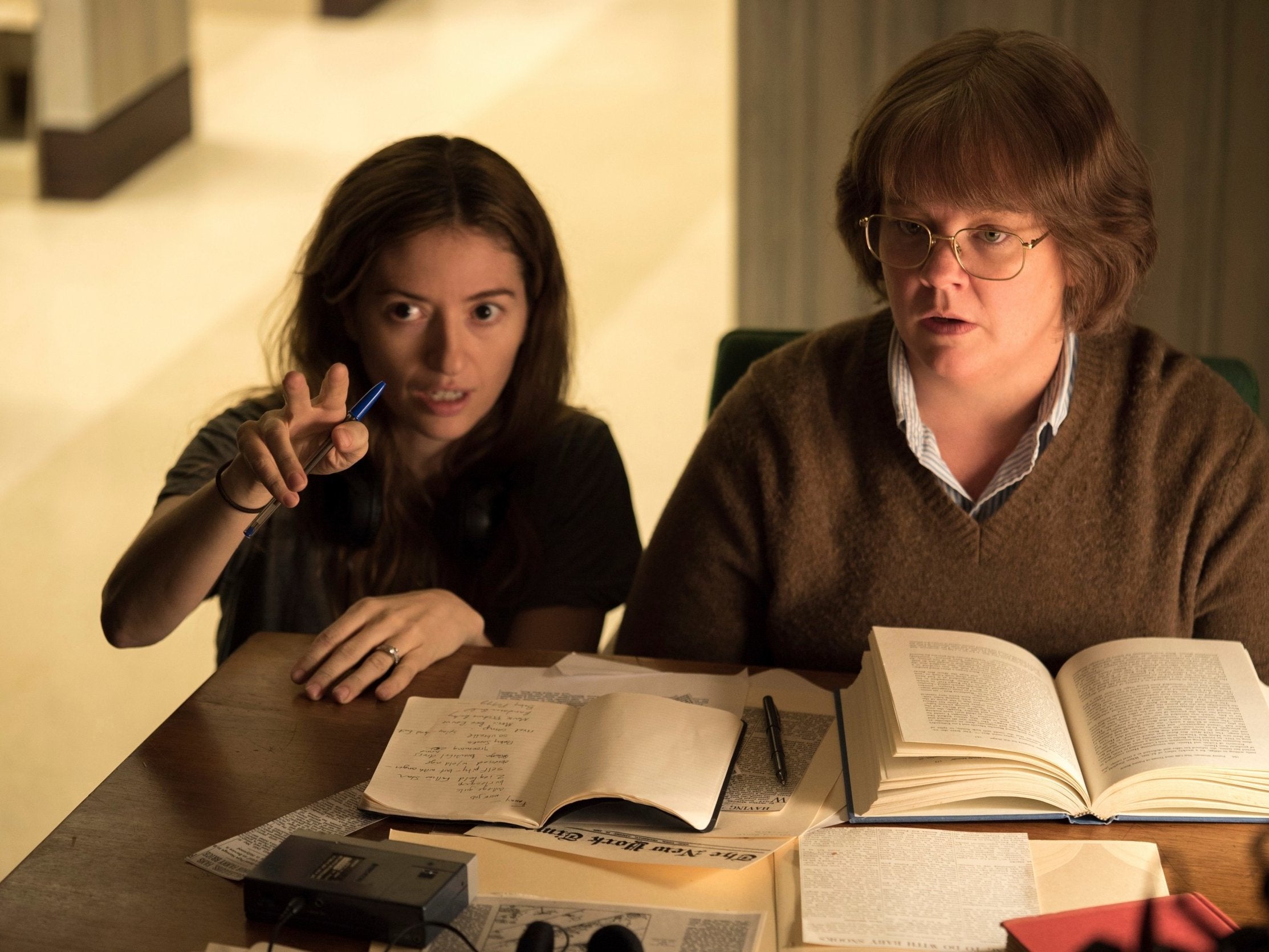The Independent's journalism is supported by our readers. When you purchase through links on our site, we may earn commission.
Bafta’s failure to nominate any female directors is an outrage
2018 produced a crop of brilliant films by women, from ‘Leave No Trace’ to ‘Can You Ever Forgive Me?’, so why are the Baftas – like the Oscars – still living in the past, demands Clarisse Loughrey


Your support helps us to tell the story
From reproductive rights to climate change to Big Tech, The Independent is on the ground when the story is developing. Whether it's investigating the financials of Elon Musk's pro-Trump PAC or producing our latest documentary, 'The A Word', which shines a light on the American women fighting for reproductive rights, we know how important it is to parse out the facts from the messaging.
At such a critical moment in US history, we need reporters on the ground. Your donation allows us to keep sending journalists to speak to both sides of the story.
The Independent is trusted by Americans across the entire political spectrum. And unlike many other quality news outlets, we choose not to lock Americans out of our reporting and analysis with paywalls. We believe quality journalism should be available to everyone, paid for by those who can afford it.
Your support makes all the difference.Not a single woman is nominated for Best Director at this year’s Baftas. As has been the case since 2013, when Kathryn Bigelow received a nomination for her gripping dramatisation of the hunt for Osama bin Laden, Zero Dark Thirty. She is also the only woman to have ever won a Bafta for Best Director, for 2009’s The Hurt Locker. Since the creation of the award in 1968, woman have been nominated in the category only seven times. You could argue that its business as usual. But how long can this status quo last before the Baftas, and the many awards ceremonies like it, realise they’re still living in the past?
Certainly, the Baftas are hardly unique in this aspect. No female directors have been nominated for an Oscar in 2019 either and, in its 91 years, only five women have been nominated for Best Director: Lina Wertmüller for Seven Beauties (1975), Jane Campion for The Piano (1993), Sofia Coppola for Lost in Translation (2003), Kathryn Bigelow for The Hurt Locker (2009), and Greta Gerwig for Lady Bird (2017). Bigelow is again the only woman to have won.
When the Baftas similarly failed to nominate any woman last year, with even Gerwig failing to land a spot, Bafta chair Jane Lush told Variety that the blunder was merely a reflection of wider systemic problems. “Of course we want to see women in the Best Director category. It’s not about blaming people. It’s about what we can do to make it different,” she said, pointing to Bafta’s own programme designed to help promote female directors within the industry. It’s much needed. Only four of the top 100 films at the box office in 2018 were directed by women: Ava DuVernay’s A Wrinkle in Time, Kay Cannon’s Blockers, Abby Kohn’s I Feel Pretty, and Susanna Fogel’s The Spy Who Dumped Me. Furthermore, more than 80 per cent of female directors never make a second film, as opposed to more than 50 per cent of male directors.
Women aren’t, in the first place, being offered the kind of major studio projects like A Star is Born or Green Book that would make natural awards frontrunners. Just 10 per cent of the film entries submitted to the Baftas this year were directed by women. That, in turn, plays into the general reluctance from studios to invest any significant amount of money into awards campaigns for films directed by women. There’s an idea that they’re too intimate, and too low-budgeted, to compete with the usual flashy contenders.
A notable exception that proves the rule here is Gerwig’s Oscar nomination last year. Although Gerwig may not have convinced Bafta voters, Melissa Silverstein, founder of Women and Hollywood, told Vanity Fair that the director was one of the few women who had access to the tools needed to launch a successful awards campaign. “[She] was everywhere last year,” she said. “There was money behind her, she had a great story, and her movie resonated with a lot of people. You see what it takes to get to the finish line, and it’s all about money and access to capital.”
However, there’s a limit to how much awards bodies like Bafta can simply pass on the blame here. The lack of female nominees for Best Director this year feels particularly outrageous because there was enough momentum behind several films directed by women to see them nominated in other categories. Melissa McCarthy and Richard E Grant were both nominated for their performances in Can You Ever Forgive Me?, with the film also receiving a nomination for Best Adapted Screenplay. Yet, the film’s director, Marielle Heller, has not been recognised; it’s a move ignorant of how her work behind the lens helped find the film’s remarkable tone, which allows McCarthy’s character, the once-successful biographer turned literary forger Lee Israel, to be defiant and bitter in the face of her circumstances, while never testing the audience’s empathy with her. Margot Robbie also landed a nomination for Josie Rourke’s Mary Queen of Scots, for her portrayal of Elizabeth I, while Nadine Labaki’s Capernaum was nominated for Best Film Not in the English Language.
It’s particularly frustrating to see Lynne Ramsay’s You Were Never Really Here recognised in one category only: Outstanding British Film. Ramsay is one of the finest directors working in the UK today and her latest, which stars Joaquin Phoenix as a PTSD-suffering hired gun who embarks on a mission to rescue an abducted teen, only cements her status as a truly original talent. You Were Never Really Here is an uncompromising, chilling ride into the very depths of one man’s trauma, where violence becomes a funnel for all of its protagonist’s rage, shame, and despair. Ramsay won the Best Screenplay award at the 2017 Cannes Film Festival, while Phoenix won the award for Best Actor. It’s been praised by critics, with The Independent naming it one of the best five films of 2018.
Other films by female directors went completely unrecognised, including Debra Granik’s Leave No Trace, Karyn Kusama’s Destroyer, and Chloé Zhao’s The Rider. The argument that the Baftas simply had no female-directed films to nominate becomes weaker and weaker the more you actually examine the cinematic landscape of the past 12 months, which has seen more than enough women behind the camera producing critically acclaimed and successful work. As Heller noted to Vogue: “It’s weird. There are so many women who have done incredible work this year, but they’ve been totally ignored by the awards. In many ways, I feel so fortunate to be working, but there are times when I look around and realise that we still have so far to go.”

The time for excuses has ended. The work is there, but it’s down both to studios to financially back films directed by women in a way that can put them at the forefront of the awards conversation, and to awards bodies to take a step back and examine where their own internal biases may be preventing women from getting their due recognition. It’s a vicious cycle, but someone needs to break it.
Join our commenting forum
Join thought-provoking conversations, follow other Independent readers and see their replies
Comments